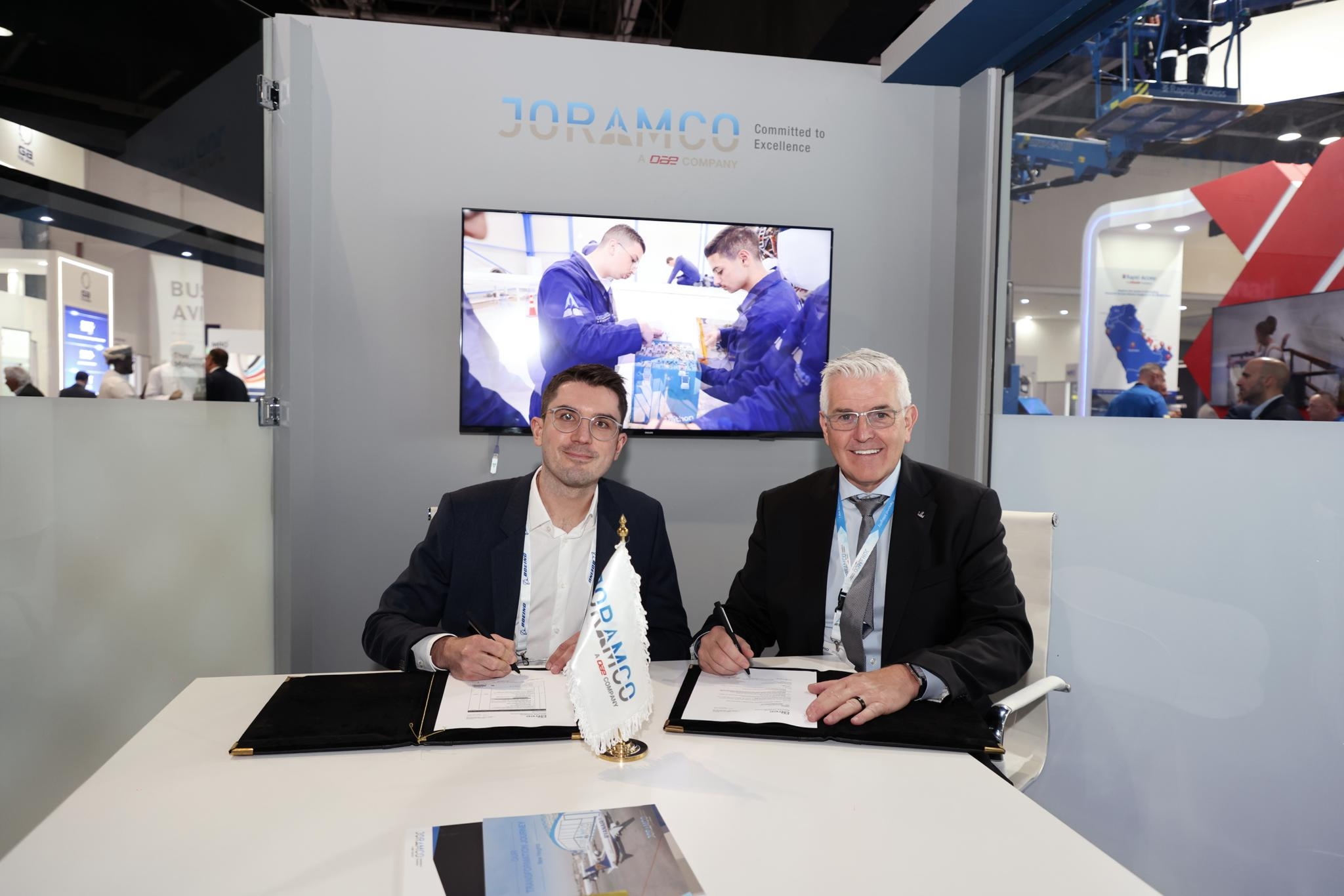AeroGenie — Uw intelligente copiloot.
Trending
Categories
Joramco Expands MRO Services to Include Embraer E2 Aircraft

Joramco Expands MRO Services to Include Embraer E2 Aircraft
Joramco has broadened its maintenance, repair, and overhaul (MRO) capabilities by integrating support for the Embraer E2 aircraft into its service portfolio. This expansion marks a significant advancement in the company’s technical proficiency and operational reach. The enhancement was made possible through a comprehensive training program designed to meet the highest standards of aircraft maintenance and ensure exceptional service quality.
Comprehensive Training Program Enhances Technical Expertise
The training initiative combined both theoretical and practical elements to equip Joramco’s technicians with the necessary expertise. The theoretical instruction was conducted on-site at Joramco’s facilities by Embraer specialists, who customized the curriculum to align with the company’s specific operational procedures. This tailored approach ensured that the training was directly relevant to Joramco’s maintenance environment. Subsequently, technicians participated in hands-on training at Embraer’s dedicated facilities in Brazil. Under the supervision of the original equipment manufacturer (OEM), they gained practical experience working with the Embraer E2 aircraft. This dual-phase training was critical in preparing Joramco’s workforce to maintain the advanced E2 fleet effectively and reliably.
Strategic Significance and Market Positioning
Fraser Currie, Chief Executive Officer of Joramco, highlighted the strategic importance of this development. He noted that incorporating the Embraer E2 into the company’s service offerings is a vital component of Joramco’s long-term strategic plan and reinforces its commitment to supporting Jordan’s national flag carrier, Royal Jordanian. Currie emphasized that this milestone not only enhances Joramco’s ability to respond to evolving customer needs but also broadens its capacity to service a wider range of modern aircraft. This expansion strengthens Joramco’s position as a leading and competitive entity within the regional MRO market, solidifying its role in the aviation maintenance sector.

Emirates Unveils Cabin Design for New Boeing 777X

Eighteen Years On, the Airbus A380 Remains Central to a $34 Billion Airline

How a boom in luxury airline seats is slowing down jet deliveries

Navitaire Outage Attributed to Planned Maintenance

DigiYatra Debuts Outside Aviation at India AI Impact Summit

Vietnam Orders Strengthen Boeing’s Commercial Outlook

Airbus Signals Uncertainty Over Future A400M Orders

JobsOhio Awards $2 Million Grant to Hartzell Propeller for Innovation Center

Collins Aerospace Tests Sidekick Autonomy Software on YFQ-42A for U.S. Air Force CCA Program

How the Airbus A350-1000 Compares to the Boeing 777
